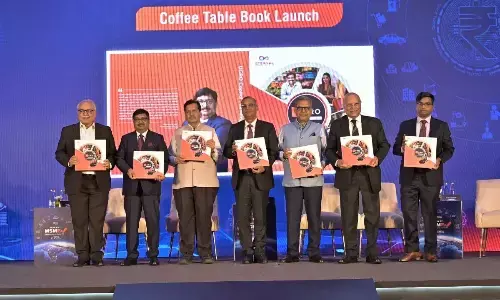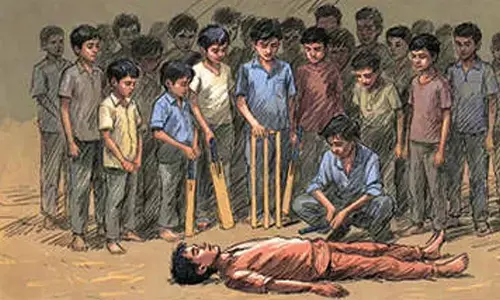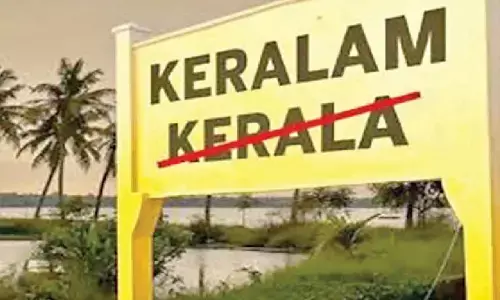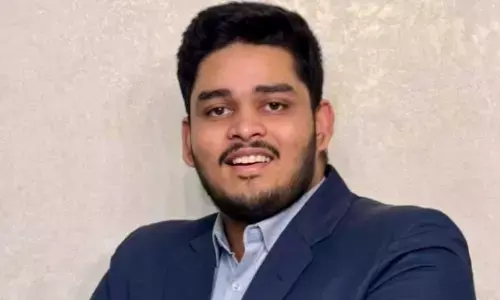Kashmir And The Sin Of Silence
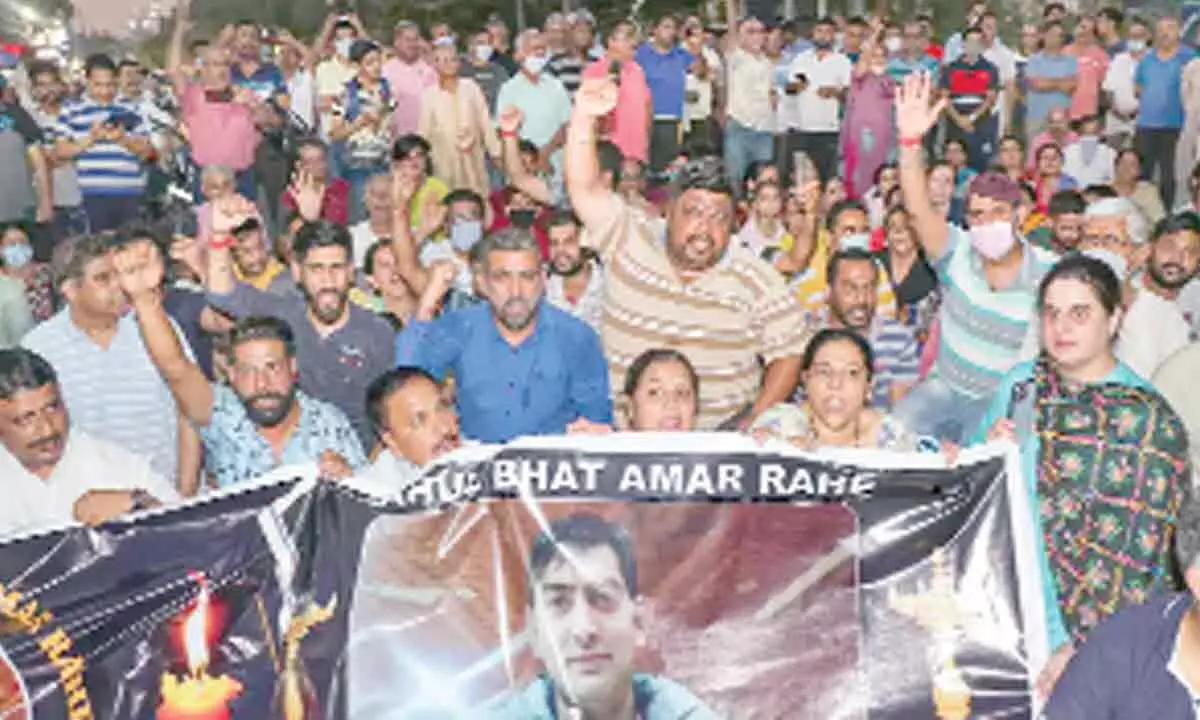
To sin by silence when they should protest makes cowards of men: Lincoln
Two days after Rahul Bhat was killed in a government office in Jammu and Kashmir on May 12, the building was reopened and all his colleagues, officers and subordinates trooped in and have been working silently since then. None of his colleagues or seniors even condemned the killing, or showed any sympathy, according to Bhat's family, which has been pointing fingers at them.
TV actress Amreena Bhat was shot dead by terrorists and her 10-year-old nephew injured in his arm at Chadoora in Kashmir's Badgam district. Her family and relatives shed tears and some even took to social media. But no one came out to protest – neither her colleagues, nor her neighbours. All went silently back to their usual routine.
Not long ago, the picture of little Safa in blood-soaked clothes, lying alone on a stretcher in a hospital and staring blankly, went viral. Safa got a bullet injury when her father, J&K Police constable Saifullah Qadri, 45, was killed by terrorists outside their home in Soura, on the outskirts of Srinagar. The family is struggling to come to terms with this. Safa's pictures were shared a thousand times, and a few concerns were expressed, but silence has descended on her locality.
This silence is deafening
As one stands on the Shankaracharya hill in Srinagar, a vast expanse of homes interspersed by greenery and water bodies lie ahead. The surrounding silence seems meditative from above, but as one moves on the roads and the streets below, things don't seem normal. Three decades ago, it wasn't like this. Even a small incident would evoke curiosity and neighbours and unknown people would come to help and stand by the victim's family. Today, there is no reaction, no empathy; the only overwhelming presence is that of silence.
In all the incidents of terrorism, whether a Muslim is killed or a minority community member, or a non-local is targeted, silence seems to be all-pervasive. No one protests, no one comes on roads to raise slogans and no one points out the identity of the killers. The neighbours, colleagues and even the affected family's relatives choose to remain quiet.
In a majority of these terror incidents, the perpetrators just come, kill and escape without any hindrance, and there never seems to be any eyewitness. Rahul Bhat's is a case in point. He was working in a secured government building with a CRPF picket nearby. Despite the security and the checks, the killers walked straight into his office and pumped five bullets into him while he was at his desk.
Several questions are bound to arise: Why were the weapon-wielding men not detected as they entered the building? How did the killers know where Rahul was sitting? When they were leaving, why did no one raise an alarm or alert the picket guards? Everyone in Rahul's office has slipped into a questionable silence, indicating either collusion or fear.
Similar questions arise each time a targeted killing happens in Kashmir.
"Your very silence shows you agree" Perhaps, the answers to these disturbing questions are to be found in this quote from Euripides, one of the greatest exponents of Greek tragedy. Targeted killings can be 'successfully' executed only when pinpointed information is available and those present at that time keep silent.
On October 7, 2021, terrorists entered the Government Boys Higher Secondary School, Idgah, Srinagar, and fired point-blank at the principal, Supinder Kour, 46, a Sikh, and a Kashmiri Pandit, Deepak Chand, 38, who had migrated back to the Valley from Jammu. No one protested the killings and the school went back to its business a few days later.
All the targeted killings or other terror acts are always claimed by various terror outfits. Security officials say that targeted killings are difficult to prevent, but if there is a public outpouring of anger, then pressure can be built up against the perpetrators. In Kashmir, however, any act of terror fails to generate the widespread public outcry it should.
Recently, when the separatist Yasin Malik was convicted in a terror funding case and sentenced to life imprisonment, protests and incidents of stone pelting took place. Though the police arrested ten people near Malik's home, the fact is that people did attempt to gather in support of a convicted terrorist. If people haven't forgotten to react, then why do they so selectively and not in all the terror-related cases?
No one can forget the lynching of DSP Ayub Pandit outside the gate of the Jamia Masid in Srinagar on June 22, 2017, when people were observing Shab-e-Qadr. The victim's family and friends did try to raise their voice but were silenced by the 'on-ground workers' (OGWs) of the various terror outfits. A few videos showing this had gone viral and were much discussed.
Security analysts have been blaming the rampant radicalisation in the valley for the support being extended to terrorists. More than the fear of the gun, it is radicalisation that is helping the terror outfits and their sponsors in Pakistan to keep the terror momentum high in the valley.
The reasons for the silence may be varied, but the reality is that this silence has ruined Kashmir. The majority silently saw the persecution and exodus of the minorities from the valley; they have been quiet on the killing of moderates, they don't raise their voice when girls are raped by terrorists; they don't react when terrorists forcibly live in their homes; and they never question the killings.
The silence is now weighing upon the majority, which is failing to raise its voice against the drug menace, kidnappings, incidents of gang rape and acid attacks, which were unheard-of in the valley before the advent of terrorism in the late 1980s.
Abraham Lincoln had said, "To sin by silence when they should protest makes cowards of men." This sounds so true in Kashmir today.



